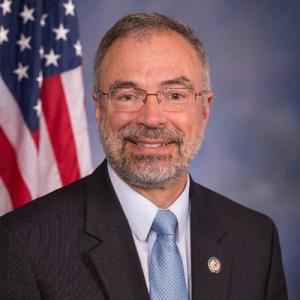The BC Center for Substance Abuse is ready to go there.
It's a low move, even for Harris.
Please join "Stand with Human Rights and Democracy: Global Campaign for the Philippines" -- protest in DC, and social media to use from anywhere!
It's busy, busy in state legislatures, the Michigan Court of Appeals rules against workers' rights, and more.
A West Virginia deputy sheriff gets caught up in an FBI drug dealing investigation, a Georgia prison guard gets nailed for taking bribes to smuggle pot into the joint, and more.
The Philippines president vows even harsher drug war, the Mexican Senate approves a new national guard to fight drug crime, a Florida bill would end mandatory minimum drug sentences, and more.
In New Mexico, a pair of competing marijuana legalization bills are advancing; meanwhile, in Old Mexico, the Supreme Court takes the country another step down the path to legalization, and more.
San Francisco moves to expunge more than 9,000 pot convictions, Rhode Island's attorney general wants to defelonize drug possession, Peruvian farmers are leaving the coffee fields for the coca fields, and more.
The Granite State gets one step closer to marijuana legalization, Vermont gets one step closer to allowing taxed and regulated legal marijuana sales, West Virginia gets one step closer to speeding up overdose reporting requirements, and more.
A bill to end federal marijuana prohibition has been filed in the House and Senate, a Hawaii decriminalization bill advances, a New Mexico bill would attempt to aid drug-using pregnant women -- not punish them -- and more.
In the past few years, the powerful synthetic opioid fentanyl and its derivatives have been the primary driver of the drug overdose death epidemic. A wave of addiction that began with prescription opioids two decades ago and morphed into one driven by heroin after the crackdown on pain pills one decade ago has now clearly entered a third phase: the era of fentanyl.

Pharmaceutical heroin. (Creative Commons)
The responses have ranged from the repressive to the pragmatic. Some state and federal legislation seeks a harsher criminal justice system response, whether it's increasing penalties for fentanyl trafficking or charging hapless drug sharers with murder if the person they shared with dies. In other cases, the opioid epidemic has emboldened harm reduction-based policies, such as the calls for safe injection sites in cities such as Denver, New York, Philadelphia, San Francisco, and Seattle.
Just a couple of hours up the road from Seattle, Vancouver, British Columbia, has been grappling with the same wave of opioid addiction and now, the arrival of fentanyl. And it has arrived with a real wallop: According to the British Columbia Coroner’s Service, fentanyl was implicated in 85 percent of overdose deaths in the province last year, up from only four percent just six years earlier. And with the arrival of fentanyl and, in 2016, its cousin, carfentanil, overdose deaths in B.C. jumped more than four-fold in that same period, from 333 in 2012 to 1,489 in 2018.
But while American cities are just now moving toward opening safe injection sites, Vancouver has had them for years, part of the city’s embrace of the progressive Four Pillars strategy—prevention, treatment, harm reduction, and enforcement—of dealing with problems around drug misuse and addiction. In fact, more than a dozen safe injection sites are now operating in the city, as well as a couple of programs that involve providing pharmaceutical grade heroin or other opioids to hard-core addicts who have proven unamenable to traditional forms of treatment.
Such harm reduction programs have not prevented all overdose deaths, but they have radically reduced the toll. B.C. Chief Coroner Lisa Lapointe has estimated that without those programs, B.C. would have seen triple the number of fatal overdoses.
Vancouver has been on the cutting edge of progressive drug policy reforms for the past 20 years, and now, faced with the fentanyl crisis, some researchers are proposing a radical next step: heroin buyers’ clubs.
In a report published last week, the B.C. Center on Substance Use, which has strong ties to the provincial government, called for the clubs as part of a broader plan for "legally regulated heroin sales in B.C." to protect users from fentanyl-adulterated heroin and cut the profits of organized crime.
The proposal "is inspired by cannabis compassion clubs and buyers' clubs, both of which emerged in the 1980s and 1990s in response to the AIDS epidemic," the authors note.
"The compassion or buyers' club would function as a cooperative (or ‘co-op’), as an autonomous and democratic enterprise owned and operated by its members," the report explains. "A member-driven purchasing cooperative is an arrangement among businesses or individuals whereby members agree to aggregate their demand in order to purchase a certain product at a lower price from a supplier," it continues. "By aggregating their purchase orders and relevant resources, members are able to take advantage of volume discounts, price protection, shared storage and distribution facilities and costs, and other economies of scale to reduce their overall purchasing costs."
It wouldn't exactly be the Dallas Buyers Club, the 2013 film that portrayed unorthodox methods of obtaining AIDS medications in the 1980s. There would be some structure: To be accepted into the club, people addicted to opioids would have to undergo a medical evaluation, and once admitted to the club, they would still have to buy their own heroin, but with many advantages over buying black market dope. The main advantage would be that they would be receiving pure, pharmaceutical grade heroin (known as diacetylmorphine in countries where it is part of the pharmacopeia)—not an unknown substance that is likely to contain fentanyl.
Club members could inject the drug at a designated location—the report suggests that existing safe injection sites could be used—or take small amounts of the drug with them for consumption at home. The report also calls for each club to include related services, such as overdose response training, access to the opioid overdose reversal drug naloxone, and options for members to access social services such as detox, rehab, and other treatment options.
Not only could buyers' clubs create a safer, cheaper heroin-using experience for members, the report argues, but they could also erode the black market and its tendency to produce more potent drugs—the so-called Iron Law of Prohibition.
"Fentanyl adulteration in the illicit drug supply is a predictable unintended consequence of drug prohibition," the report concludes. "The same forces that pushed the market away from relatively bulky opium towards heroin, a more concentrated opioid that was easier to transport clandestinely, have continued to push the opioid market to increasingly potent synthetic opioids, including a range of fentanyl analogs. A cooperative could undermine the illegal market wherever it is set up."
Such a plan faces legal and political challenges in Canada, but those can be overcome if the provincial and federal governments get on board. Obstacles to such a plan being rolled out in the United States are even greater, especially given an administration hostile toward harm reduction in general that would most likely view legal heroin sales as anathema.
But here in the U.S., we're a decade or so behind Vancouver when it comes to progressive drug policies, so it's time to get the conversation started. After all, these sorts of approaches to the problem are likely to be more effective than throwing addicts in jail or building boondoggle border walls.
This article was produced by Drug Reporter, a project of the Independent Media Institute.
back to top
U.S. Rep. Andy Harris (R-MD), representing Maryland's Eastern Shore, has quite a reputation among marijuana reform activists—and not a good one. For years, Harris has done everything he can to block progressive reforms and has hamstrung the District of Columbia's efforts to bring full pot legalization—meaning taxed and regulated sales, not just the legalization of possession and cultivation—to the nation's capital.

vindictive anti-marijuana Rep. Andy Harris (house.gov)
Among those attending was Salisbury University student activist Jake Burdett. Burdett briefly live-streamed part of the meeting without seeking anyone's permission—a violation of Maryland's "all-party consent" law requiring that any recordings only take place with the knowledge of the individuals involved.
According to Maryland Marijuana Justice (MDMJ), the activist group of which Burdett is a member, the student was not aware of the state law regarding recordings, and when he was made aware of it after the meeting, he apologized to the staffer involved and deleted the live stream the next day.
Harris could have accepted Burdett's moves to atone for his innocent misdeed. Instead, he pressed felony charges against him—for revealing to the public what a public servant was saying in a government office on government time.
Adam Eidinger, the D.C. activist who led the successful 2014 legalization initiative and who grew so irritated with Harris's interference in D.C. home rule that he moved to Harris's district and co-founded MDMJ, is calling him out on it.
"Jake, who is a serious student leader, has a bright political future ahead of him that Representative Andy Harris wants to tarnish. In his honest attempt to provide the public with transparency into actions of a Congressional office that regularly insults marijuana reformers with false accusations, Jake’s live stream served as a conduit for the public to witness the endemic corruption in Salisbury," he said in a statement.
"By deciding to throw the book at Mr. Burdett for an honest mistake, one that was fixed almost immediately, it shows how partisan and petty Congressman Harris has become. He clearly wants to chill citizen participation in government, Eidinger added.
MDMJ co-founder Kris Furnish also weighed in on Burdett's behalf.
"Is it unreasonable for a 20-year-old to think that it’s legal to record a staffer of a United States Congressman in a public space? In a society that supposedly values transparency in government, I do find it odd that Jake can be found guilty of the ‘crime’ of recording the staff of elected government representatives in a taxpayer-funded space," he said.
"Rep. Harris wants to pretend to be victimized by a 20-year-old’s deleted live stream, while he supports the racist war on drugs that actually victimizes thousands of people a day by locking them up for the victimless crime of smoking marijuana, a non-addictive substance with many medicinal benefits."
Harris's hostility toward Burdett and the other MDMJ activists is matched only by his hostility toward their cause. Named by Forbes as one of the five worst House representatives on marijuana policy, Harris has used his position on the House Appropriations Committee, which has authority over District of Columbia spending, to try to block the D.C. Council from decriminalizing pot possession, a move that led the city's non-voting delegate to Congress, Eleanor Holmes Norton (D) to call him "a tyrant."
When District voters approved marijuana legalization at the ballot box in 2014, Harris was on hand again to try again to throw up obstacles couldn't stop the city from ending marijuana prohibition, but he and his Republican colleagues in the House were able to block the District from regulating commercial sales.
It's not just that he doesn't believe in changing the marijuana laws; he has repeatedly evidenced a vindictive streak. When D.C. Mayor Muriel Bowser (D) allowed the legalization vote to go into effect despite objections from Republicans in Congress, Harris said she should be locked up, In remarks made before the 2016 elections, Harris said if a Republican won the White House, he hoped he would prosecute the D.C. mayor: "You have to wait for the next administration. It’s a five-year statute of limitations," Harris said. "All I can say is we’ll gather all the information. Maybe next the attorney general actually wants to enforce the law."
He also isn't a fan of democracy in the District: "We don’t take lightly interfering in D.C. home rule, but when they make clearly bad decisions…. This is where I think D.C. made a bad decision about its own rule and we have — the Congress has — the ultimate authority."
Harris's vindictiveness wasn't aimed just at D.C., though; he also wanted to crack down on states whose voters had democratically chosen to legalize marijuana. "It is illegal under the law. This is an example of the administration not wanting to enforce the law," he said.
Harris is a big fan of enforcing the law. In fact, he's such a big fan that he using the law to hammer down an uppity student activist who irritated—but did not harm—him or his staff.
back to top
February 24 is an important day. Two years ago, President Rodrigo Duterte of the Philippines unjustly imprisoned Senator Leila de Lima, who had dared to challenge Duterte for his drug war killings, which now may number as many as 28,000.
Today, not only is de Lima still behind bars, Duterte's trying to jail another senator as well a newspaper publisher. He's promising to make the drug war even more deadly during the remaining three years of his term. And he's withdrawn the Philippines from the International Criminal Court treaty – but that won't stop him from one day facing justice for the crimes he's already committed.
This February 24 (this Sunday), we will call again for Senator de Lima's release. And we announce the launching of "Stand with Human Rights and Democracy: Global Campaign for the Philippines," a worldwide partnership to address this human rights crisis.
Join us if you can in Washington, DC, 4:00-5:00pm on Sunday February 24, for our protest at the Embassy of the Philippines, 1600 Massachusetts Ave. NW. When we protested there a year ago, the video went viral in the Philippines, sending the message that the world is watching. Please RSVP on our Event page, to let your friends know and to encourage others to join us.
Click here to read about that action and watch the video. Along with the oversized Duterte and de Lima masks used in our street theater last year, we've added two new figures, Rappler publisher Maria Ressa (a TIME Person of the Year) and Senator Antonio Trillanes. It's going to be a good show, and we need your help.
Whether you can join us or not, please spread the word on social media.
Click here for a folder of images with sample text to post. And if you want to do more to protest this, check out our
protest action resources kit too.
February 24 is important. The loss of life in Duterte's drug war is bad enough, but the brazenness with which he's doing this is having international ramifications. The killings have spread to some countries already, and it's affecting the climate in more. Other human rights violations are on the rise in the Philippines too. Meanwhile, the Kremlin disinformation machine is supporting and campaigning for Duterte, in the Philippines and internationally.
If a dictatorship gets established in the Philippines, there's no telling how far the killings could go. That's why we're asking you to stand with human rights and democracy, and with our allies in the Philippines working for justice and a better drug policy.
back to top
It's busy, busy in state legislatures, the Michigan Court of Appeals rules against workers' rights, and more.
ArizonaArizona House Committee Approves Bill to Protect Edibles, Extracts. The House Committee on Public Safety voted 5-2 Wednesday to approve HB 2149. The measure would specify that the 2010 voter-approved medical marijuana law also includes any products made from its resins. In a case pending before state courts, the state has argued that edibles and hashish are not included in the law.
Florida
Florida Bill to Allow Smokable Medical Marijuana Heads for Senate Floor Vote. The Senate Rules Committee voted Wednesday to approve SB 182, which would end the state’s ban on smokable medical marijuana. That means the measure will head for a Senate floor vote weeks ahead of a March 15 deadline set by Gov. Ron DeSantis, who has threatened litigation if the legislature doesn’t act.
Maryland
Maryland Medical Marijuana Normalization Bills Get Senate Hearing. A raft of bills authored by Sen. Bobby Zirkin (D-Baltimore) and aimed at normalizing medical marijuana usage in the state got a Senate hearing Tuesday. One bill says medical marijuana patients should not be denied the right to purchase or possess firearms, another would prohibit landlords from denying leases to medical marijuana patients, and yet another would restrict employers’ right to fire or not hire medical marijuana users. No votes were taken.
Michigan
Michigan Appeals Court Rules Against Worker Not Hired for Medical Marijuana Use. The state Court of Appeals ruled Tuesday against a woman who had a job offer rescinded because she tested positive for marijuana—even though she had a medical marijuana card. The ruling is a boon for employers who apply zero-tolerance substance abuse policies.
Missouri
Missouri Publishes First Draft Medical Marijuana Rules. The state Department of Health and Human Services has posted its first draft rules for the state medical marijuana system approved by voters in November 2018. The first batch of draft rules deals with requirements for ID cards for the program. There will be public hearings before the rules are finalized. The state has until June 4 to begin taking applications for ID cards.
New Hampshire
New Hampshire Medical Marijuana Home Grow Bill Advances. The House Human Services and Elderly Affairs Committee voted to approve HB 364, which would allow medical marijuana patients to grow their own medicine. The bill called for allowing patients or caregivers to grow up to two mature plants and 12 seedlings but was amended in committee to allow up to three mature plants, three immature plants, and 12 seedlings.
Oklahoma
Oklahoma Medical Marijuana Regulatory Bill Advances. The House Rules Committee voted Thursday to advance HB 2612, the Oklahoma Medical Marijuana and Patient Protection Act. The bill sets up an extensive medical marijuana framework and is moving with bipartisan support.
[For extensive information about the medical marijuana debate, presented in a neutral format, visit MedicalMarijuana.ProCon.org.]
back to top
A West Virginia deputy sheriff gets caught up in an FBI drug dealing investigation, a Georgia prison guard gets nailed for taking bribes to smuggle pot into the joint, and more.
In Hamilton, Ohio, a state prison guard was arrested last Friday for allegedly smuggling drugs into the prison. Daniel Garvey, 28, is charged with illegal conveyance of drugs, trafficking in drugs, and possession of drugs. No details about what led up to the arrest are available.In Atlanta, a former Georgia prison guard was convicted last Friday of accepting payments to smuggle drugs and other contraband into a state prison. Jokelra Copeland, 32, was found to have repeatedly smuggled packages of marijuana into the prison and to have accepted at least $13,000 in bribes. Copeland was one of 68 Georgia corrections officers arrested by the FBI in 2016 following an extensive federal investigation into officers smuggling contraband into prisons for money while others used their credentials to protect drug deals on the outside, according to the DOJ.
In Charleston, West Virginia, a former Kanawha County Deputy Sheriff was sentenced last Wednesday to three years' probation for lying to the FBI about buying drugs from a suspect for his own personal use. Robert Evans went down when he bought opioid pain medication from a target of an FBI drug trafficking investigation. The FBI found texts between Evans and the drug dealer that revealed he had been buying pain pills from him for months. Evans returned the favor by running license plate and vehicle identification numbers at the request of drug dealers.
back to top
The Philippines president vows even harsher drug war, the Mexican Senate approves a new national guard to fight drug crime, a Florida bill would end mandatory minimum drug sentences, and more.

Pharmaceutical heroin. Could it be coming to heroin buyers clubs in Vancouver? (Creative Commons)
Oklahoma Medical Marijuana Regulatory Bill Advances. The House Rules Committee voted Thursday to advance HB 2612, the Oklahoma Medical Marijuana and Patient Protection Act. The bill sets up an extensive medical marijuana framework and is moving with bipartisan support.
Asset Forfeiture
Missouri Bill to End Civil Asset Forfeiture Advances. The House Judiciary Committee has approved HB 444, which would bar law enforcement from confiscating assets from someone unless and until that person is convicted of a criminal offense. The bill now heads to the House floor.
Sentencing
Florida Criminal Justice Reform Bill Would End Mandatory Minimums. A sweeping criminal justice reform bill that includes ending mandatory minimum sentences for drug offenses has been introduced in the Senate. SB 642, the Florida First Step Act must get past the Senate Appropriations Committee and the Senate Criminal Justice Committee before heading for a Senate floor vote.
International
British Columbia Plan for "Heroin Buyers Club" Unveiled. The BC Center of Substance Abuse Thursday unveiled a plan to create a heroin buyers club to sell pure, regulated heroin to people addicted to opioids. The cooperative group would buy bulk medical grade heroin from Switzerland to sell to doctor-assessed club members. The plan is part of the effort to stem overdoses in Vancouver. Informal heroin buyers clubs are reportedly already operating in the city, but their supplies are iffy.
Mexican Senate Approves Plan for New National Guard to Fight Crime, Drugs. The Senate on Thursday approved President Andres Manuel Lopez Obrador’s plan to create a new national guard, a key part of the government’s strategy to address drug gang violence. But the Senate amended the legislation to ensure that the new security force is headed by civilians, not the military, which has been linked to numerous human rights violations.
Philippines President Vows "Harsher" Drug War in Coming Days. President Rodrigo Duterte vowed to ramp up his bloody anti-drug campaign in a speech Wednesday. The war on drugs will be "harsher in the days to come," he said. When asked by reporters if the crackdown would be even bloodier, he said: "I think so." The remarks were condemned by the Philippine Commission on Human Rights: "With thousands that have already been killed because of this campaign, ‘harsh’ is an understatement and a trivialization of the lives that were lost—it is irreversible and the suffering of families of victims can be lifelong," Jacqueline De Guia, CHR spokesperson, said. "To say that it will be ‘harsher’ insults the victims and their families while the drug trade has not seemingly waned."
Thai King Signs Decree Legalizing Medical Marijuana and Kratom. Thai King Maha Vajiralongkorn has signed a royal decree formalizing the legalization of medical marijuana and kratom. The move comes some two months after the military government’s parliament unanimously approved it.
back to top
In New Mexico, a pair of competing marijuana legalization bills are advancing; meanwhile, in Old Mexico, the Supreme Court takes the country another step down the path to legalization, and more.
Marijuana PolicyAmy Klobuchar Joins the Democratic Pack in Supporting Legalization. The Minnesota senator has now joined most other Democratic presidential contenders in embracing marijuana legalization. Sens. Bernie Sanders (VT), Cory Booker (NJ), Kamala Harris (CA), and Kristen Gillibrand (NY) have also come out for legalization. Klobuchar joined them with this statement last Friday: "I support the legalization of marijuana and believe that states should have the right to determine the best approach to marijuana within their borders."
Iowa Poll Has State Split Down the Middle on Legalization. A new Des Moines Register Iowa poll has Iowans evenly split on legalization, with 48% in favor and 48% opposed. That's a big jump in support from the previous Iowa Poll in January 2018, when only 38% supported legalization.
New Mexico Legalization Bills Advance. A legalization bill, HB 356, is headed for a House floor vote after the House Judiciary Committee approved it on a 7-3 vote Saturday. Meanwhile, another legalization bill, SB 577, passed out of the Senate Public Affairs Committee with no recommendation and must pass out of two more committees before heading for a floor vote. The Senate bill would have marijuana sold through state-run stores, while the House bill would leave it to private operators.
Oregon Social Consumption Bill Gets Hearing Tuesday. A bill that would legalize social consumption lounges and allow marijuana farm tours will get a hearing in the Senate Tuesday. SB 639 would bar temporary events and marijuana lounges from being within 1,000 feet of a school. The hearing will be before the Senate Committee on Business and General Government.
International
Mexico Supreme Court Injunctions Trigger Ruling Marijuana Ban is Unconstitutional. The Supreme Court last Friday published eight rulings on the recreational use of marijuana that found prohibiting the drug was unconstitutional. The move means that as of now, all Mexican federal judges must grant injunctions to people who seek to use pot recreationally allowing them to grow and possess it for personal use. The court notified the Congress on February 13 that it had approved the rulings, triggering a 90-day window for lawmakers to try to come up with a marijuana legalization law.
Peru Approves Regulations for Medical Marijuana. Some 15 months after the legislature approved medical marijuana, regulations to cover its production and use were published in the official gazette on Saturday. The regulations cover guidelines and procedures for research, farming and production limits, importation,
(This article was prepared by StoptheDrugWar.org's 501(c)(4) lobbying nonprofit, the Drug Reform Coordination Network, which also pays the cost of maintaining this website. DRCNet Foundation takes no positions on candidates for public office, in compliance with section 501(c)(3) of the Internal Revenue Code, and does not pay for reporting that could be interpreted or misinterpreted as doing so.)
back to top
San Francisco moves to expunge more than 9,000 pot convictions, Rhode Island's attorney general wants to defelonize drug possession, Peruvian farmers are leaving the coffee fields for the coca fields, and more.
Marijuana PolicyBaltimore Mayor Pressed to End Marijuana Arrests. Fourteen local advocacy groups have sent a letter to Mayor Catherine Pugh urging her to direct the police commissioner to stop arresting people for small-time pot offenses. The letter comes after Baltimore State's Attorney Marilyn Mosby announced a new policy of not prosecuting such cases, only to have interim Police Commissioner Gary Tuggle, a former DEA agent, refused to order police to stop making the arrests. Tuggle is gone now, but it's unclear what his replacement, Michael Harrison, will do, thus the letter to the mayor urging her to lead on the issue.
San Francisco Will Expunge More Than 9,000 Marijuana Convictions. City prosecutors announced Monday that they would move to expunge some 9,300 marijuana possession convictions dating back to 1976. The move comes after a yearlong review of pot convictions in the city. The effort was bolstered by the city's decision to work with a Code for America, a nonprofit that uses technology to make government more efficient. Coders created an algorithm that combed through the city's decades worth of criminal records in minutes—and automatically filled out the required forms to be turned in during the expungement process.
Medical Marijuana
Missouri Publishes First Draft Medical Marijuana Rules. The state Department of Health and Human Services has posted its first draft rules for the state medical marijuana system approved by voters in November 2018. The first batch of draft rules deals with requirements for ID cards for the program. There will be public hearings before the rules are finalized. The state has until June 4 to begin taking applications for ID cards.
Treatment
West Virginia House Approves Drug Treatment Bills. The House on Monday passed two bills related to drug treatment and amended a third. HB 3132 exempts certain providers from some of the medication-assisted treatment licensing requirements. HB 3133 would mandate that probationers with history or symptoms of addiction to attend support services for at least 60 days. The bill that was amended was HB 2991, which authorizes the continuation of an addiction prevention and recovery fund. That bill requires any proceeds from settlements with drug manufacturers or distributors to go into the fund; the amendment would allow state agencies to recover reasonable administrative costs.
Sentencing
Rhode Island Attorney General Plans Bill to Defelonize Drug Possession. State Attorney General Peter Neronha has announced plans to introduce legislation that would make possession of up to an ounce of any drug other than marijuana a misdemeanor. "There is a significant difference between those who traffic in drugs and those who possess them," explained Neronha at a press conference at the attorney general’s office in Cranston. "I learned how difficult it is for somebody getting out of prison, or somebody with a felony conviction to get back into the workforce. To get housing. To get back on their feet," he said.
International
UN Commission on Narcotic Drugs Delays Vote on WHO Marijuana Rescheduling Recommendation. The Commission on Narcotic Drugs will not vote on the World Health Organization's marijuana recommendations during its March session in Vienna That news comes after the release of the recommendations, which had been expected in December, was delayed. Several counties asked for more time to consider the recommendations saying they only received the rescheduling recommendation in late January. If the recommendations had come out in time, countries would have had three months to study them before the Vienna meeting.
Peru Farmers Are Abandoning Coffee Crops to Work in Coca Fields. Slumping coffee prices and delays in certifying organic beans are pushing Peruvian coffee growers out of the business and into the coca fields, the country's main coffee growers' association said Monday The Junta Nacional del Café said farmers started migrating to coca growing regions in December and hundreds have since abandoned their coffee fields. "Coffee ... exports are in real trouble, and we lack the support of the government with clear actions to overcome them," said the JNC’s head, Tomas Cordova. "This foments poverty, unemployment and the expansion of illegal crops."
back to top
The Granite State gets one step closer to marijuana legalization, Vermont gets one step closer to allowing taxed and regulated legal marijuana sales, West Virginia gets one step closer to speeding up overdose reporting requirements, and more.

New England is a real hotbed of marijuana-related legislation these days. (Creative Commons)
New Hampshire House Passes Marijuana Legalization Bill. A bill to end marijuana prohibition and regulate it for adult use was approved by the House in a 209-147 vote Wednesday. in New Hampshire passed in the state House of Representatives Wednesday with a strong majority (209-147). HB 481 will now be referred to the House Ways and Means Committee for further consideration of the proposed regulatory system and tax structure. If the bill gets through the legislature, it faces a veto threat from Gov. Chris Sununu (R).
Vermont Bill to Tax and Regulate Marijuana Sales Heads for Senate Floor Vote. Vermont legalized personal marijuana possession and cultivation last year, and now a bill that would expand legalization to include taxed and regulated marijuana sales is headed for a Senate floor vote after passing out of committee Tuesday. SB 54 would create a Cannabis Control Board to regulate the legal marijuana market and set up five types of licenses for various businesses. Similar legislation, HB 196, is before the House Committee on General, Housing and Military Affairs.
Medical Marijuana
Maryland Medical Marijuana Normalization Bills Get Senate Hearing. A raft of bills authored by Sen. Bobby Zirkin (D-Baltimore) and aimed at normalizing medical marijuana usage in the state got a Senate hearing Tuesday. One bill says medical marijuana patients should not be denied the right to purchase or possess firearms, another would prohibit landlords from denying leases to medical marijuana patients, and yet another would restrict employers’ right to fire or not hire medical marijuana users. No votes were taken.
New Hampshire Medical Marijuana Home Grow Bill Advances. The House Human Services and Elderly Affairs Committee voted to approve HB 364, which would allow medical marijuana patients to grow their own medicine. The bill called for allowing patients or caregivers to grow up to two mature plants and 12 seedlings but was amended in committee to allow up to three mature plants, three immature plants, and 12 seedlings.
Heroin and Prescription Opioids
West Virginia Senate Approves Bill to Speed Fatal Overdose Reporting. The Senate on Tuesday unanimously approved a bill that would require fatal overdoses to be reported to the state Office of Drug Control Policy within 72 hours. SB 520 now heads to the House. Under current state law, overdoses only need to be reported within three months.
back to top
A bill to end federal marijuana prohibition has been filed in the House and Senate, a Hawaii decriminalization bill advances, a New Mexico bill would attempt to aid drug-using pregnant women--not punish them--and more.

Sen. Cory Booker and others have refiled the Marijuana Justice Act. (Creative Commons)
Federal Marijuana Justice Act Refiled. Sen. Cory Booker (D-NJ) has refiled the Marijuana Justice Act, which would end federal prohibition by removing pot from the list of controlled substances. Cosponsors include other Democratic presidential contenders, such as Sens. Kirsten Gillibrand (D-NY), Kamala Harris, (D-CA), Elizabeth Warren (D-MA), and Bernie Sanders (I-VT), as well as Oregon Sen. Jeff Merkley, who is considering a bid. In the House, Rep. Barbara Lee (D-CA) filed identical legislation.
Florida Legalization Bills Filed. A pair of Democrats have filed a pair of linked marijuana legalization bills. Reps. Michael Grieco of Miami and Carlos Guillermo of Orlando filed HB 1117 and HB 1119. The former legalizes marijuana and sets up a system of regulated production and sales, while the latter provides for taxes and fees on the trade.
Hawaii Decriminalization Bill Advances. The House Judiciary Committee on Wednesday approved HB 1383, which would decriminalize both marijuana possession and distribution, making them punishable only by a fine. The bill also provides for the expungement of previous marijuana offenses. It now heads for a House floor vote.
Medical Marijuana
South Carolina Medical Marijuana Bill Stalled. The Compassionate Care Act, SB 366, is stalled in the Senate, Senate Medical Affairs Subcommittee Chairman Tom Davis (R-Beaufort) said after a hearing Wednesday. He said that after hearing from stakeholders, lawmakers want to amend the bill and hold it in committee until they have several more hearings.
Pregnancy
New Mexico Bill Would Aid Drug-Using Pregnant Women, Not Punish Them. Rep. Christine Trujillo (D-Albuquerque) has filed HB 230, which would shift the way the state reports child abuse when a woman tests positive for drugs during pregnancy. Instead of immediately notifying authorities that a woman is using drugs during pregnancy, state organizations would create a "Plan of Safe Care" that would provide guidelines for preventing future drug use in hope of delivering healthy babies. The bill has already passed the House Health and Human Services Committee but faced a tough House Judiciary Committee Wednesday.
International
Switzerland Could Let Up to 5,000 People Smoke Pot Legally for Studies. The Swiss government said Thursday it could let up to 5,000 people legal smoke marijuana in pilot studies aimed at shaping rules for recreational use of the drug. The cabinet has proposed limited pilot projects that could lead to a change in the country's ban on marijuana, which dates back to 1951. The plan will be open for public comment until midyear.
(This article was prepared by StoptheDrugWar.org's 501(c)(4) lobbying nonprofit, the Drug Reform Coordination Network, which also pays the cost of maintaining this website. DRCNet Foundation takes no positions on candidates for public office, in compliance with section 501(c)(3) of the Internal Revenue Code, and does not pay for reporting that could be interpreted or misinterpreted as doing so.)
back to top








